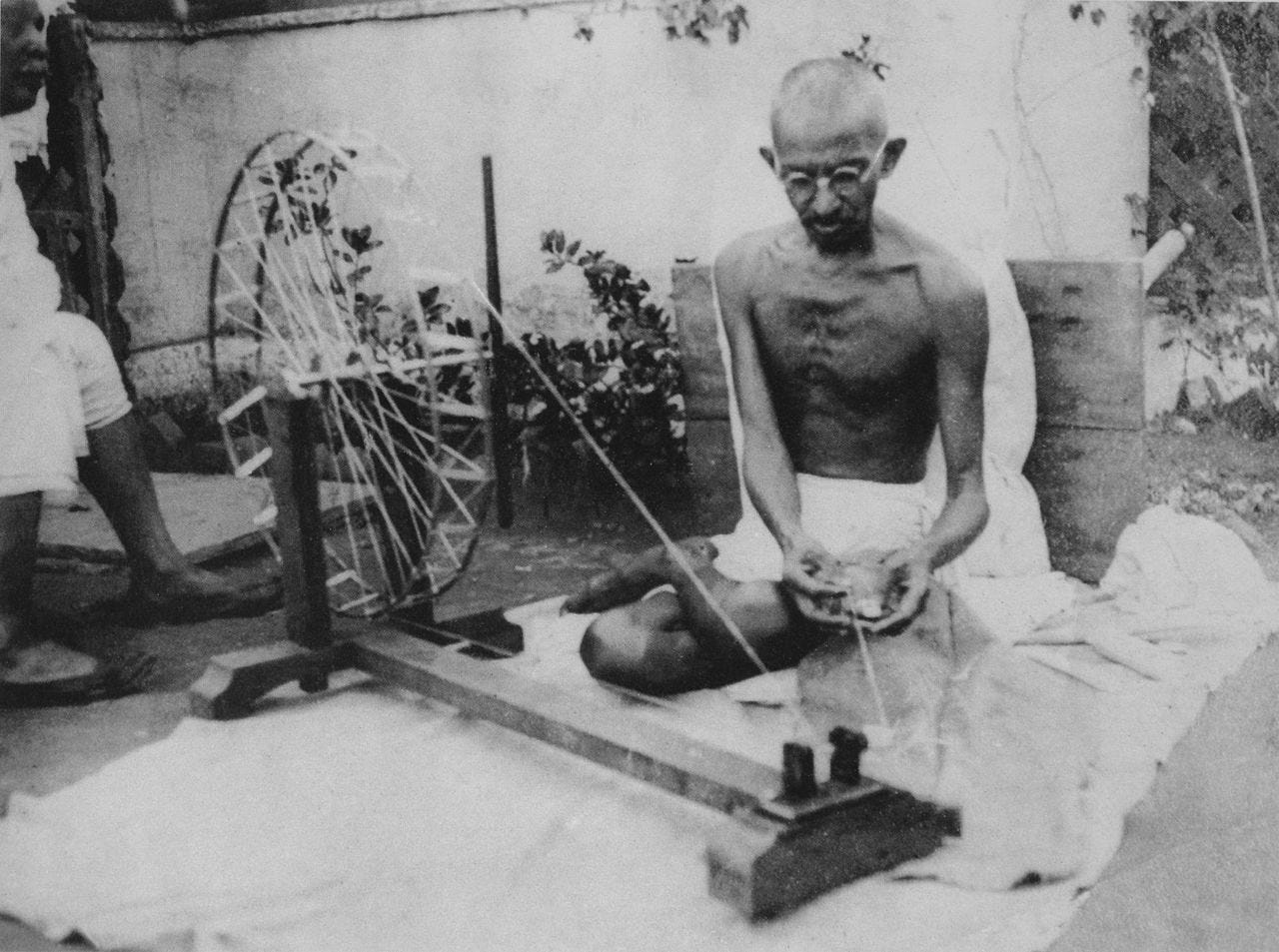On Constitutions, Confessionalization, and Gandhi
Institutions that are not ecclesial but want a religious identity struggle to define themselves constitutionally.
A common strategy is to develop their own “Statement of Faith”. This strategy is not without difficulties. It defines faith outside of the context of existing communities of faith in the world. Such institutions risk becoming new religious movements separate and distinct from the faith they sought to preserve.
My colleague Dylan Pahman thinks this is a great reason for religiously minded institutions to adopt churchly confessions. He’s partial to the first seven ecumenical councils. Calvin University faculty affirm the three forms of unity—the Belgic Confession, the Heidelberg Catechism, and the Canons of Dort. Adapting ecclesial constitutions to new institutional settings is a difficult task as the 58 page long ‘Confessional Commitment and Academic Freedom: Principles and Practices at Calvin College’ demonstrates.
There’s a passage in Chandrashanker Shukla’s Conversations of Gandhiji which gets at the difficulties of confessionalization at a deeper level:
"How could you reconcile yourself to believing all religions to be true?"
That has been my fundamental position for years. Underlying it is the idea that you don't become the judges of the world. Differences in the world there have been, and will be. God is all-powerful. He appears in many shapes and forms. If we search, we may find as many religions as there are men. Hundreds of men are merely striving to know the Truth. They will put the Truth in their own way. No two men will put it in identical terms. Though I know that God, the all-powerful, resides in every one of us, we are imperfect media. We are all different. No two bodies are identically the same. No two leaves of the tree are identically the same; there is bound to be some difference. Each one prays to God according to his own light. Whom am I to judge and say that I pray better than you do? I don't judge the Muslims, Parsis, Christians, and Jews. If I am a seeker of Truth, it is quite sufficient for me. I cannot say that because I have seen God in this way, the whole world must see Him in that way. All religions are true and equal. That, however, is not to say that they are equally true in religious terms or are absolutely true. Another man's religion is true for him, as mine is for me. I cannot be a judge of his religion. That is my fundamental position.
The history of the world’s religions is replete with examples of persons ostensibly holding the same confession and yet, “They will put the Truth in their own way. No two men will put it in identical terms.” Gandhi recognizes this fact while realizing that that, “is not to say that they are equally true in religious terms or are absolutely true.”
How to square the circle?
“Every way of a man is right in his own eyes:
but the Lord pondereth the hearts.”
-Proverbs 21:2


